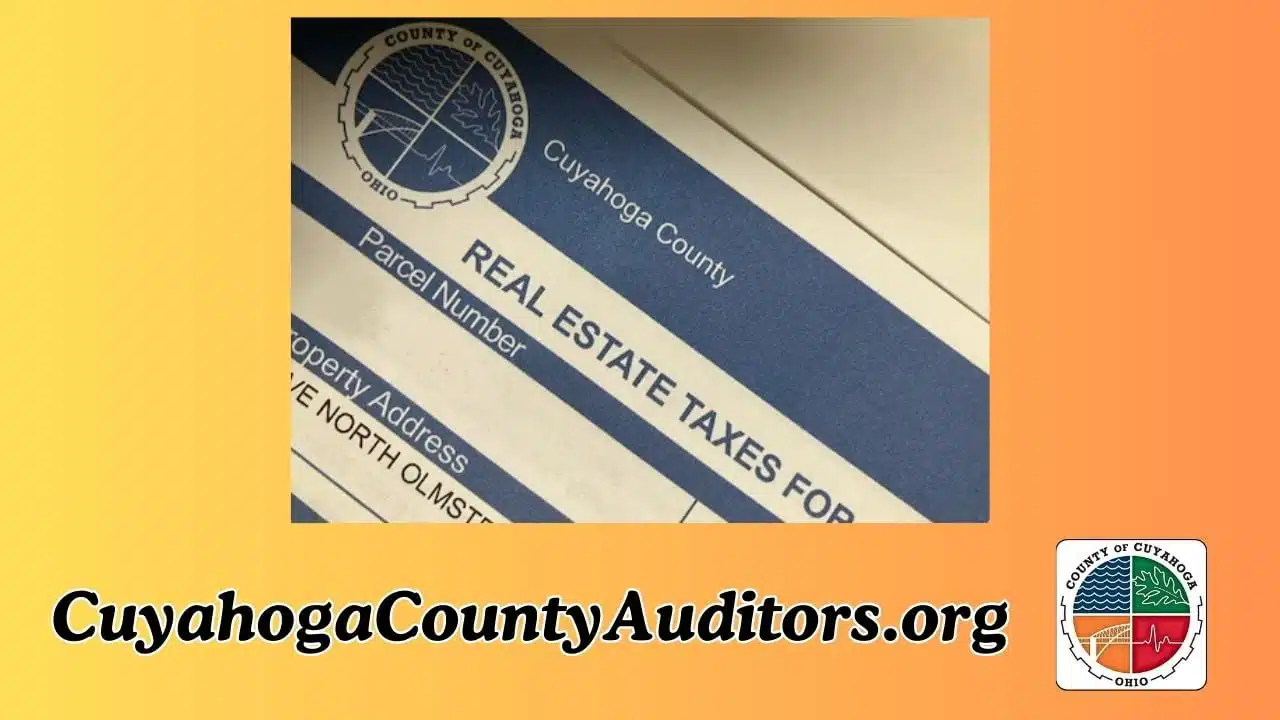Transferring property in Cuyahoga County, Ohio, requires following specific steps. Whether you’re buying, selling, or transferring for another reason, knowing the process is key. This guide will walk you through the steps, from the first agreement to the final transfer.
What Are Property Transfer Procedures in Cuyahoga County?
In Cuyahoga County, transferring property involves legal and administrative steps. You’ll need to sign documents, pay taxes, record deeds, and ensure the title is clear. This guide will explain each step in detail.
Step 1: Prepare the Property for Sale or Transfer
Before you can transfer the property, there are a few steps to take. These ensure everything is ready for legal and financial paperwork.
1. Property Inspection and Valuation
- Get a professional to inspect the property for issues or defects.
- Get a valuation to make sure the sale price is fair.
2. Gather Necessary Documents
- Property title or deed.
- Proof of ownership, like a deed of trust.
- Mortgage information or lien details.
Step 2: Draft a Purchase Agreement
The next step is drafting a purchase agreement. This document outlines the terms and conditions of the transfer.
Key Elements of a Purchase Agreement:
- Buyer and Seller Information: Names, contact details, and addresses.
- Property Description: Detailed description of the property, including address and legal description.
- Sale Price: The agreed-upon price for the property.
- Contingencies: Conditions that must be met before the sale, like financing or inspections.
- Closing Date: The date of the transfer.
Step 3: Title Search and Insurance
A title search is critical in the transfer process. It confirms the seller has clear title and can legally transfer ownership.
Why is Title Search Important?
- It finds any liens or encumbrances on the property.
- It verifies the seller’s legal ownership and right to sell.
Title Insurance: After the title search, consider buying title insurance. It protects the buyer from title issues that might arise after the sale.
Step 4: Draft and Sign the Deed
The deed transfers ownership from the seller to the buyer. In Cuyahoga County, you’ll often use a warranty deed or quitclaim deed.
Types of Deeds:
- Warranty Deed: Guarantees the property title is clear.
- Quitclaim Deed: Transfers the seller’s interest in the property without warranties.
Key Elements of a Deed:
- Grantor and Grantee Information: The seller (grantor) and buyer (grantee) must be clearly identified.
- Property Description: A legal description of the property, including boundaries and parcel number.
- Signatures: Both the seller and the buyer must sign the deed.
The deed must be signed in front of a notary public to be valid.
Step 5: Pay Transfer Taxes and Fees
In Cuyahoga County, property transfers have taxes and fees. These need to be paid before recording the deed.
Transfer Tax:
- Ohio requires a real estate transfer tax on property sales. This tax is split between the buyer and seller.
- The current rate is $1 per $1,000 of sale price, with a county tax of $0.50 per $1,000.
Other Fees:
- Recording Fees: Recording the deed with the Cuyahoga County Recorder’s Office comes with fees.
- Title Insurance Fees: Title insurance has additional fees.
Step 6: Record the Deed with the County Recorder
After signing documents and paying taxes and fees, record the deed with the Cuyahoga County Recorder’s Office.
Why Is Recording the Deed Important?
- It provides public notice of the change in ownership.
- It protects the buyer’s interest in the property.
To record the deed, submit it to the Recorder’s Office with fees. They will record it and return a copy to the buyer.
Step 7: Finalizing the Property Transfer
After recording the deed, the transfer is complete. The new owner can take possession, and the title is officially transferred.
What Happens After the Transfer?
- The new owner gets a recorded deed as proof of ownership.
- The local tax authority updates property records with the new owner.
Cuyahoga County Property Transfer Taxes and Fees
| Fee Type | Amount/Rate | Who Pays |
|---|---|---|
| State Real Estate Transfer Tax | $1 per $1,000 of sale price | Split (Buyer/Seller) |
| County Transfer Tax | $0.50 per $1,000 of sale price | Split (Buyer/Seller) |
| Recording Fee | $28 for the first page, $8 for each additional page | Buyer/Seller |
| Title Insurance Fee | Varies by property value and insurance provider | Buyer |
Common Pitfalls in Property Transfer Procedures
The property transfer process is straightforward, but there are common pitfalls. Both buyers and sellers should watch out to avoid delays or legal issues.
1. Failure to Complete a Title Search
- Not conducting a title search could result in the discovery of liens or ownership disputes after the sale.
2. Improperly Drafted Deeds
- Incorrectly drafted or incomplete deeds can delay the process or result in a transfer that isn’t legally valid.
3. Unpaid Taxes or Fees
- If taxes or fees aren’t paid before closing, the transfer can be delayed or even canceled.
Required Documents for Property Transfer in Cuyahoga County
| Document | Purpose | Who Provides |
|---|---|---|
| Purchase Agreement | Outlines terms of the sale | Buyer/Seller |
| Deed | Official transfer of ownership | Seller |
| Title Search Report | Verifies ownership and encumbrances | Buyer |
| Proof of Property Tax Payments | Verifies that property taxes are up to date | Seller |
| Transfer Tax Payment Receipt | Proof of tax payment | Buyer/Seller |
Conclusion
Transferring property in Cuyahoga County involves several steps. These steps ensure the deal is legal and goes smoothly. From getting the property ready to signing the deed and paying taxes, each step is important.
By knowing these steps, buyers and sellers can avoid mistakes. This way, they can make sure the property transfer is successful.






